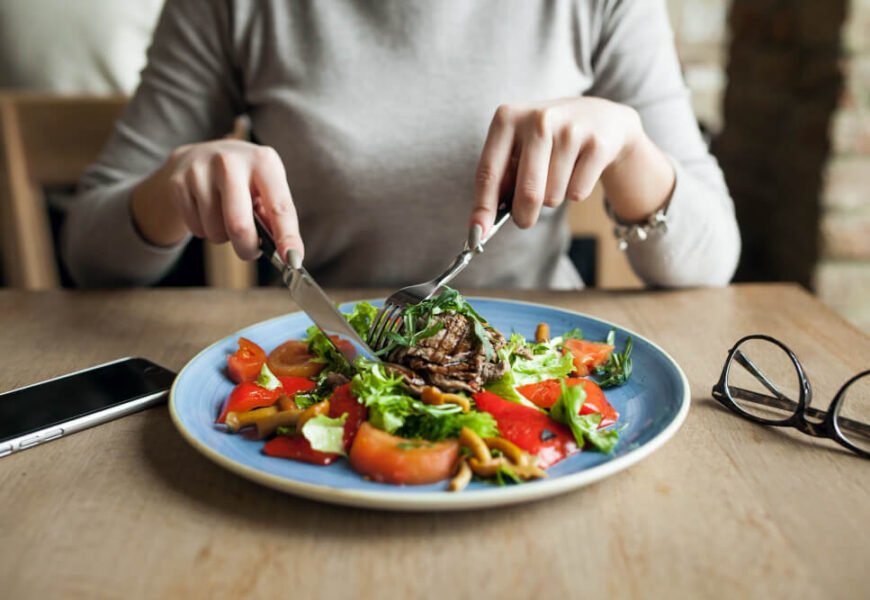Do you often find yourself reaching for snacks or indulging in late-night meals, only to regret it when sleep continues to evade you? If so, you’re not alone. Many individuals struggling with sleep issues are searching for solutions to improve their sleep quality and overall well-being. The connection between diet and sleep is a powerful one, yet it’s often overlooked in the quest for better sleep.
Lets say you’ve had a long day, and all you want is a good night’s sleep. You crawl into bed, hoping for some much-needed rest, but your mind is racing, and your stomach feels uneasy. Sound familiar? What you eat and drink before bed can significantly impact your sleep quality, making it essential to pay attention to your bedtime snacks and meals.
By making mindful choices about what you eat and drink before bed, you can optimize your sleep environment and set yourself up for a night of restorative rest. In this comprehensive guide, we’ll explore the best foods to include and avoid before bedtime, empowering you to make informed decisions that support better sleep.
5 Foods to Include Before Sleeping

Complex Carbohydrates:
Incorporating complex carbohydrates into your evening meal or snack can promote better sleep by helping increase serotonin levels in the brain. Serotonin is a neurotransmitter that plays a role in regulating mood and sleep-wake cycles. Opt for whole grains like oats, quinoa, or brown rice, which are rich in complex carbohydrates and can help induce feelings of relaxation and calmness.
Protein-Rich Foods:
Consuming protein-rich foods before bed can help stabilize blood sugar levels and prevent spikes and crashes that can disrupt sleep. Choose lean sources of protein such as poultry, fish, tofu, or legumes, which are easily digestible and won’t weigh you down before bedtime. Greek yogurt is another excellent option, as it contains tryptophan, an amino acid precursor to serotonin and melatonin, which are important for sleep regulation.
Healthy Fats:
Including healthy fats in your evening meal or snack can help promote feelings of fullness and satisfaction, preventing late-night cravings that could disturb your sleep. Opt for sources of omega-3 fatty acids such as fatty fish like salmon or trout, nuts and seeds like walnuts or flaxseeds, or avocados, which are rich in monounsaturated fats. These foods not only provide essential nutrients but also help support overall health and well-being.
Fruits and Vegetables:
Incorporating fruits and vegetables into your evening meals and snacks can provide a variety of vitamins, minerals, and antioxidants that support overall health and well-being. Certain fruits and vegetables also contain natural compounds that promote relaxation and sleep, such as cherries, bananas, kiwi, and leafy greens like spinach and kale. Try incorporating these foods into your evening meals or enjoying them as a bedtime snack to promote better sleep.
Herbal Teas:
Enjoying a warm cup of herbal tea before bed can be a soothing ritual that promotes relaxation and prepares your body for sleep. Opt for caffeine-free herbal teas such as chamomile, valerian root, or lavender, which contain natural compounds known for their calming and sleep-inducing effects. Sipping on herbal tea can help calm your mind and signal to your body that it’s time to unwind and prepare for restorative sleep.
5 Foods to Avoid Before Sleeping

Caffeine:
Consuming caffeine-containing beverages like coffee, tea, or soda in the evening can interfere with your ability to fall asleep and stay asleep. Caffeine is a stimulant that can increase alertness and disrupt your body’s natural sleep-wake cycle. To promote better sleep, avoid consuming caffeine-containing beverages at least four to six hours before bedtime.
Spicy Foods:
Eating spicy or heavily seasoned foods before bed can trigger heartburn or indigestion, making it difficult to get comfortable and fall asleep. Spicy foods can also increase body temperature, which can interfere with your body’s natural cooling process that occurs during sleep. To prevent discomfort and promote better sleep, avoid consuming spicy foods close to bedtime.
Heavy or Greasy Meals:
Indulging in heavy or greasy meals before bed can weigh you down and make it harder to relax and fall asleep. These types of meals can also increase the risk of acid reflux or indigestion, which can disrupt sleep and leave you feeling uncomfortable throughout the night. To promote better sleep, opt for lighter, more easily digestible meals in the evening and avoid overeating before bedtime.
Alcohol:
While alcohol may initially make you feel drowsy and relaxed, it can disrupt sleep patterns and lead to fragmented or restless sleep later in the night. Alcohol interferes with the normal sleep cycle, preventing you from experiencing the restorative deep sleep stages that are essential for overall health and well-being. To promote better sleep, limit alcohol consumption and avoid drinking alcohol close to bedtime.
Processed and Sugary Snacks:
Consuming processed or sugary snacks before bed can cause fluctuations in blood sugar levels, leading to spikes and crashes that disrupt sleep. Foods high in refined sugars and carbohydrates, such as cookies, candy, or sugary cereals, can also trigger cravings and interfere with your body’s ability to relax and fall asleep. To promote better sleep, steer clear of these types of snacks in the evening and opt for healthier, more balanced options instead.
Takeaway:
Making mindful choices about what you eat and drink before bed can have a significant impact on your sleep quality and overall well-being. By including sleep-promoting foods like complex carbohydrates, lean proteins, healthy fats, fruits, and vegetables in your evening meals and snacks, and avoiding caffeine, spicy foods, heavy meals, and alcohol close to bedtime, you can optimize your sleep environment and set yourself up for a night of restorative rest. So, next time you’re tempted to reach for a late-night snack, choose foods that support better sleep and wake up feeling refreshed and revitalized each morning. Sweet dreams!










